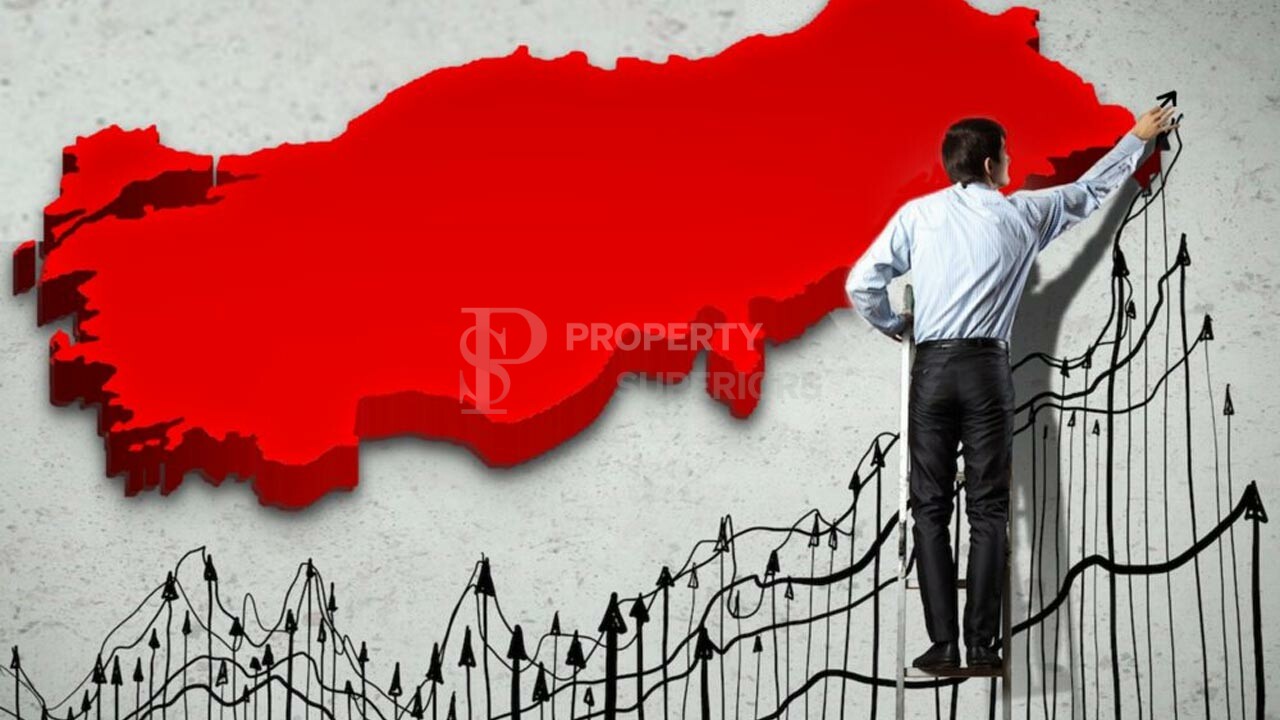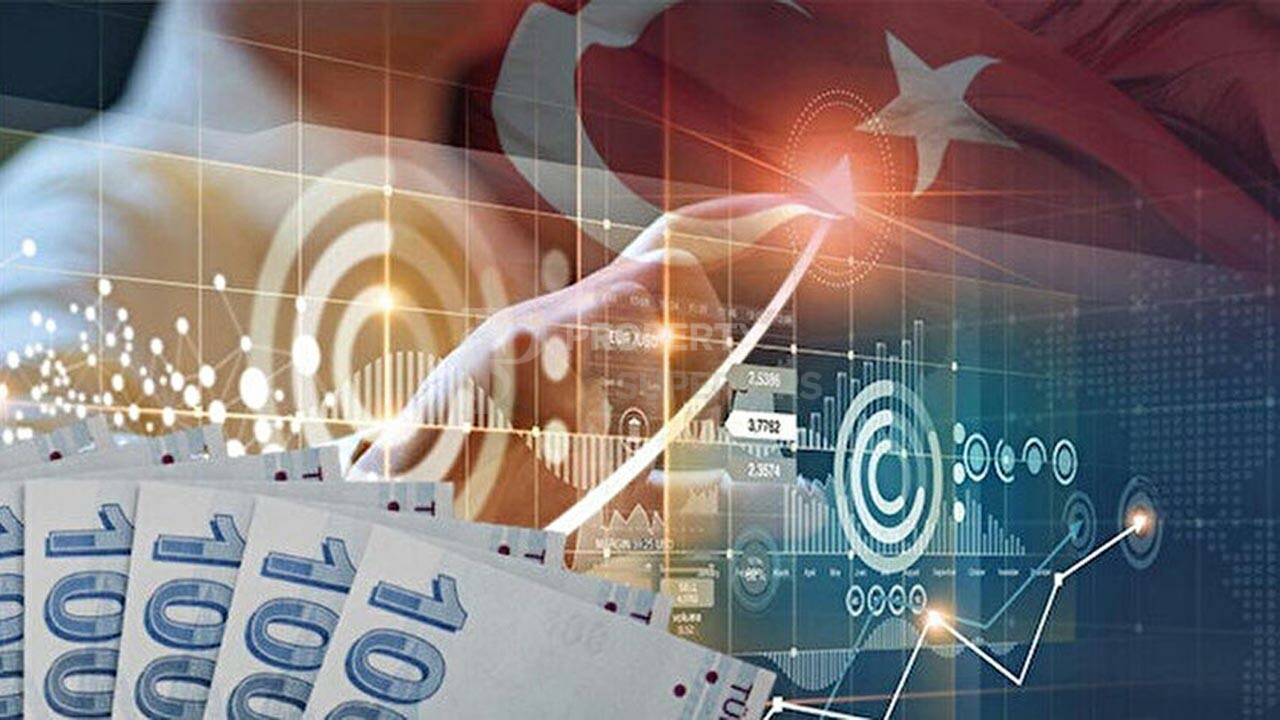
The Turkish economy is at a turning point in 2023, and the ongoing fight against inflation will be of utmost importance. Inflation is a major concern as Turkey negotiates a challenging economic environment that is shaped by both internal and external factors. This article explores the Turkish economy in 2023, providing a thorough analysis of the various facets of the country's battle with inflation and the tactics used to achieve stability and long-term growth. Turkey's battle to control inflation through monetary and fiscal policies creates an engrossing story that resonates internationally and serves as an example of the larger difficulties emerging economies face in today's interconnected world.
In 2023, will the Turkish economy be in a recession?
Prior to assessing whether the Turkish economy is experiencing a recession in 2023, it is critical to understand the implications for developing countries. Economic downturns have a significant impact on economies and societies and are an inherent part of the economic cycle.
A recession is usually characterised by a slowdown in the economy, which raises unemployment rates and lowers earnings for both individuals and companies. As such, governments and central banks often implement policies aimed at stimulating the economy and mitigating the negative effects of a recession. These interventions do come with associated costs and trade-offs, though. In a similar vein, the Turkish government has launched a new set of initiatives aimed at enhancing the country's economic situation by 2023.

How Successful Are Interest Rate Increases in Turkey as a Weapon Against Inflation?
Of course! The Central Bank of Turkey uses interest rate hikes as one weapon against inflation, or the general increase in prices for goods and services. The cost of borrowing money goes up for both individuals and companies when the central bank raises interest rates. Because higher interest rates equate to higher borrowing costs, this deters people from borrowing and spending.
An increase in interest rates may draw in foreign investment and cause the value of the Turkish lira to rise. A strengthening of the local currency may result in lower prices for imported goods. Because imports are included in the consumer basket, this can serve as a deterrent to inflation.
Read More:
How is high inflation compatible with economic growth?
Even with high inflation, economic growth is achievable, but it frequently involves trade-offs and difficulties. This explains how high inflation and economic growth can coexist:
Demand-Side Factors: When demand-side factors are the main driver of economic growth, high inflation and growth can coexist. This indicates that despite growing costs, individuals and companies are still eager to spend, invest, and grow. Under such circumstances, there may be strong economic growth fueled by higher government, corporate, and consumer spending.
Factors related to the supply side: These might include bottlenecks in the supply chain, shortages of necessities, and supply chain disruptions. In certain situations, these factors can lead to high inflation. If these problems are short-term and the economy's underlying principles hold firm, growth can still occur. Without impeding economic growth, inflation may decline once the supply constraints are lifted.
Monetary Policy: To control the trade-off between inflation and economic growth, central banks can employ monetary policy instruments. A central bank may modify interest rates and monetary policy to strike a balance between containing inflation and promoting economic growth, even though high inflation may reduce purchasing power and breed uncertainty. Careful handling is necessary to prevent excessive inflation or an overheated economy.
Expectations for Inflation: If individuals and companies prepare for high inflation and modify their actions accordingly, it may be possible to sustain it. Economic agents may be better equipped to anticipate and adjust to inflation if expectations are stable and well-anchored, which would lessen the disruptive effects of inflation on economic growth.
Government Policies: A number of government initiatives, including structural reforms and fiscal stimulus plans, have the potential to affect economic growth. Even in the face of high inflation, these policies can aid in boosting economic activity and fostering growth when paired with sensible monetary policy.
International Factors: There are additional international factors that can impact economic growth. For instance, export-driven growth can assist in sustaining economic growth in an environment of high inflation if the demand for goods and services from abroad is robust.
But in light of high inflation, it's critical to recognise the possible drawbacks and hazards of economic growth:

Decreased Purchasing Power: Money loses purchasing power when inflation is high. Even with potential continued economic growth, maintaining a standard of living for individuals and households may become increasingly difficult.
Uncertainty: Unpredictable and high inflation can exacerbate uncertainty in the business environment, making it more difficult for organisations to make long-term plans.
Investment and Savings: In times of high inflation, investors and savers may find it difficult to maintain the true value of their assets. Savings and investment decisions may be impacted by this.
Long-Term Effects: Prolonged high inflation may lead to a decline in trust in the currency, which may discourage foreign investment and cause instability in the financial system.
In conclusion, policymakers must exercise caution in balancing the objectives of promoting sustainable economic expansion and reining in inflation in order for economic growth and high levels of inflation to coexist. A number of variables, such as the reasons behind inflation, inflation expectations, and the course of policy, affect how effective this balance is.
As a result, maintaining price stability has been given top importance by Turkish policymakers and is a key component of their economic plans. This focus on stability serves as a buffer against potential negative effects in the future years as well as promoting sustainable economic growth.
We hope our blog was enjoyable. Get in touch with Property Superiors right now to discover more about Turkish real estate, culture, and entertainment!
Related posts:
The Turkish official gazette published on Tuesday, December 12, a Republican decision issued by the presidency of the Republic of Turkey and Turkish President "Recep Tayyip Erdogan" and bearing the number 32397 regarding making some amendments to the conditions for...
The first day of last September witnessed the implementation of a new law imposing financial fines on real estate owners who impose exorbitant rents on tenants in Turkey, as disputes in recent years between landlords and tenants of real estate...




 New provisions for obtaining Turkish citizenship through real estate ownership
New provisions for obtaining Turkish citizenship through real estate ownership
 Turkish Real Estate Rental Law 2024
Turkish Real Estate Rental Law 2024
 Ways to obtain Turkish citizenship through investment 2024
Ways to obtain Turkish citizenship through investment 2024
 How to choose an ideal apartment in Turkiye?
How to choose an ideal apartment in Turkiye?
 Turkish passport... Extraction method and fees 2024
Turkish passport... Extraction method and fees 2024
